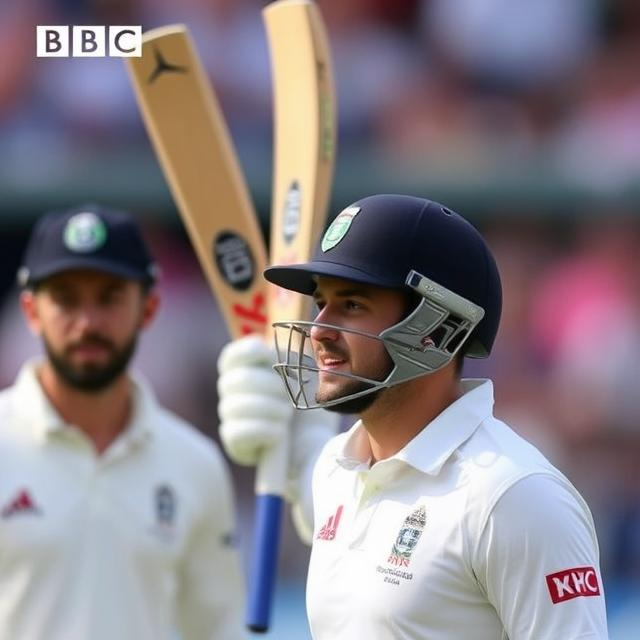Pakistan Cricket Board Coach: Navigating the Complex Landscape of Cricket Success

Pakistan Cricket Board Coach: Navigating the Complex Landscape of Cricket Success
The role of a Pakistan Cricket Board coach is more than just a position; it’s a crucial link in the chain of Pakistan’s cricketing aspirations. From nurturing young talent to honing the skills of seasoned players, the coach is tasked with steering the national team towards victories on the global stage. This article delves into the multifaceted challenges and opportunities faced by coaches in the PCB, examining the dynamics of player management, strategic planning, and the ever-evolving landscape of modern cricket.
The PCB coach faces an array of intricate responsibilities, demanding a blend of technical expertise, tactical acumen, and astute people management skills. He or she is not just a teacher of the game but a mentor, a motivator, and a crucial voice in the dressing room. This role is particularly demanding in the context of Pakistani cricket, where the pressure to perform on the world stage is immense, and the expectation for success is consistently high. Let’s explore the core aspects of this demanding role.
The Challenges of Coaching in Pakistan
The Pakistan Cricket Board coach isn’t simply faced with the technical intricacies of the game; the landscape of coaching in Pakistan is riddled with unique challenges. Political interference, financial constraints, and media scrutiny all contribute to a complex and sometimes volatile environment.
Dealing with Political Pressure: The influence of politics on Pakistani cricket is undeniable. Coaches need to navigate the delicate balance between adhering to their own cricketing philosophies and responding to pressures that may not always align with their vision. This often requires a strong sense of self-awareness and a nuanced understanding of the political climate surrounding the game.
Financial Constraints and Resource Limitations: Resource constraints, including access to world-class facilities and training programs, can significantly impact the quality of coaching. Effective coaches must find innovative ways to overcome these limitations, perhaps by utilizing readily available resources or seeking partnerships to bolster their training programs.
Media Scrutiny: The intense media scrutiny that accompanies every Pakistan cricket match creates immense pressure for the team, and the coach is not exempt. This relentless attention can negatively affect the team’s morale, particularly during periods of poor performance. Coaches need strong communication skills and a resilient temperament to navigate this demanding aspect of the job.
Technical Expertise and Strategic Planning
Beyond the challenges, the PCB coach is charged with developing a strategic vision for the team. This involves much more than just game plans – it demands a deep understanding of current cricketing trends, an awareness of opponent strengths and weaknesses, and a clear understanding of player roles and strengths.
Player Development: A crucial component of coaching success lies in nurturing talent from within the national setup. Identifying potential, fostering their individual strengths, and guiding them to achieve their full potential is a key responsibility. This often necessitates individualised training plans that cater to each player’s specific needs and learning styles.
Adapting to Modern Cricket: Modern cricket is an ever-evolving beast. Coaches need to stay abreast of the latest techniques and strategies, from the nuanced approaches in T20 to the intricacies of Test match cricket. Staying ahead of the curve in terms of fitness training and mental conditioning is also essential.
Building Team Cohesion: A strong, united team is a prerequisite for success. Coaches need to build a team environment that fosters trust, mutual respect, and shared goals. This often involves fostering strong communication channels, facilitating effective team meetings, and ensuring that every member feels valued and heard. Knowing how to communicate effectively with players from diverse backgrounds is crucial.
The Role of a Coach Beyond the Field
The challenges faced by a PCB coach extend beyond the playing field. They must build relationships with team management, support staff, and the board itself. These relationships are vital to ensuring a smooth running of operations and a conducive environment for success.
Effective Communication: Maintaining open and honest communication with stakeholders – players, management, and the board – is vital to addressing potential issues and resolving conflicts promptly. This involves clear and consistent communication strategies that address individual player needs.
Long-Term Planning: Developing a long-term vision and strategy is paramount. This necessitates understanding the needs of the national team and aligning it with the country’s cricketing ambitions. The coach’s role goes beyond short-term results to shaping the future of Pakistan cricket. This is especially important in identifying and nurturing future leaders within the team.
Looking Ahead: The Future of Pakistan Cricket
Pakistan cricket has experienced periods of both triumph and tribulation. The challenges faced by coaches are significant, but so too are the rewards of seeing the team succeed on the world stage. A dedicated and effective coach can have a transformative impact on the overall success of Pakistan’s cricket journey.
The Importance of Mentorship: Coaches must move beyond just technical skills to foster a culture of mentorship and leadership. They play a critical role in guiding not only the team’s performance but also the personal and professional development of the players. This involves developing strong interpersonal skills, fostering trust, and providing support that extends beyond the field of play.
Focusing on Player Well-being: Recognizing the mental and emotional pressures that accompany elite sports is crucial for modern coaching. The emphasis should be on creating a supportive environment that promotes mental well-being and resilience in the players. This means going beyond technical training to address the overall well-being of the team.
Conclusion: The role of a Pakistan Cricket Board coach is a complex tapestry woven with technical expertise, strategic acumen, and nuanced people management. In navigating the unique challenges and embracing the opportunities presented, the coach plays a pivotal role in shaping Pakistan’s cricketing destiny.
This article is intended for informational purposes only. It does not provide professional coaching advice.